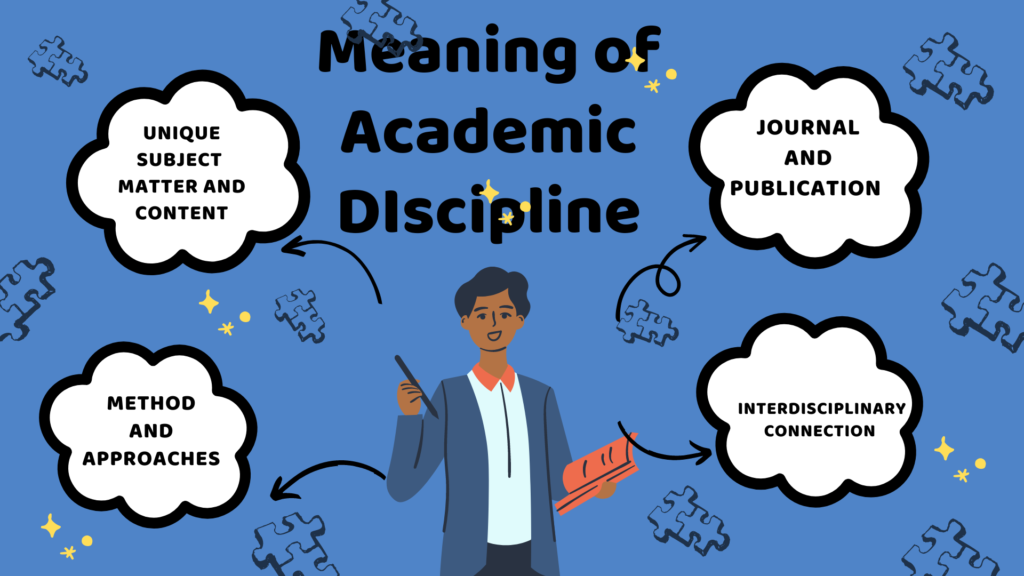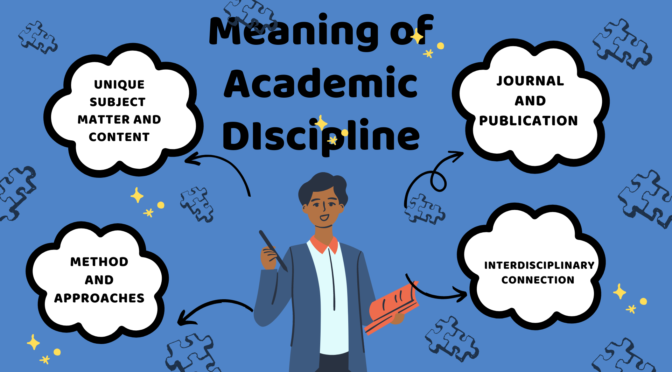Academic disciplines refer to specific fields of study within the broader domain of knowledge and education. They are distinct areas of inquiry that focus on particular subject matters, methodologies, and ways of thinking. Academic disciplines are organized and structured to facilitate the systematic exploration, understanding, and advancement of knowledge in specific domains.
Here are some key aspects that define academic disciplines:
- Subject Matter: Each academic discipline has its own unique subject matter or content focus. For example, disciplines like mathematics, physics, biology, literature, history, sociology, psychology, economics, and philosophy all have distinct subject matters that they study in depth. These subject matters provide the foundation for knowledge development within the discipline.
- Methods and Approaches: Disciplines also have specific methodologies and approaches to investigate and analyze their subject matter. These methods can include experimental research, statistical analysis, qualitative inquiry, theoretical frameworks, historical analysis, literary interpretation, and more. The methods used in a discipline are tailored to its specific subject matter and research objectives.
- Theoretical Frameworks: Academic disciplines often develop theoretical frameworks or paradigms to guide their research and understanding of the subject matter. These frameworks consist of conceptual models, principles, and theories that provide a lens through which scholars approach their investigations. Theoretical frameworks help shape the research questions, methodologies, and interpretations within a discipline.
- Community of Scholars: Disciplines are characterized by communities of scholars who engage in research, teaching, and knowledge exchange within the field. These communities consist of professors, researchers, graduate students, and practitioners who share common interests, methods, and goals. The community of scholars within a discipline helps shape its body of knowledge, establish research standards, and promote intellectual discourse.
- Journals and Publications: Academic disciplines often have dedicated journals, publications, and conferences where scholars share their research findings and insights. These outlets serve as platforms for dissemination, peer review, and collaboration within the discipline. Journals and publications play a crucial role in advancing the knowledge base of the discipline and fostering scholarly conversations.
- Interdisciplinary Connections: While disciplines have their own distinct boundaries, there are often overlaps and connections between them. Interdisciplinary studies emerge when scholars combine insights, theories, and methodologies from multiple disciplines to address complex research questions or societal issues that transcend traditional disciplinary boundaries. Interdisciplinary collaboration can lead to new perspectives, innovative approaches, and holistic understanding.
- Professional Associations: Academic disciplines are often associated with professional organizations or associations that promote collaboration, research dissemination, and professional development within the field. These associations provide platforms for networking, conferences, and workshops where scholars can connect, share their work, and stay updated on advancements in the discipline.
By organizing knowledge into specific academic disciplines, universities and educational institutions provide a structured framework for the pursuit of knowledge, research, and teaching. Disciplines serve as containers of expertise, facilitating deep exploration, specialization, and advancement in specific fields of study.
They provide a foundation for academic programs, curriculum development, and the systematic advancement of knowledge within distinct subject areas.
Also Read : Knowledge and Pedagogy

Also Visit : Prep with Harshita

